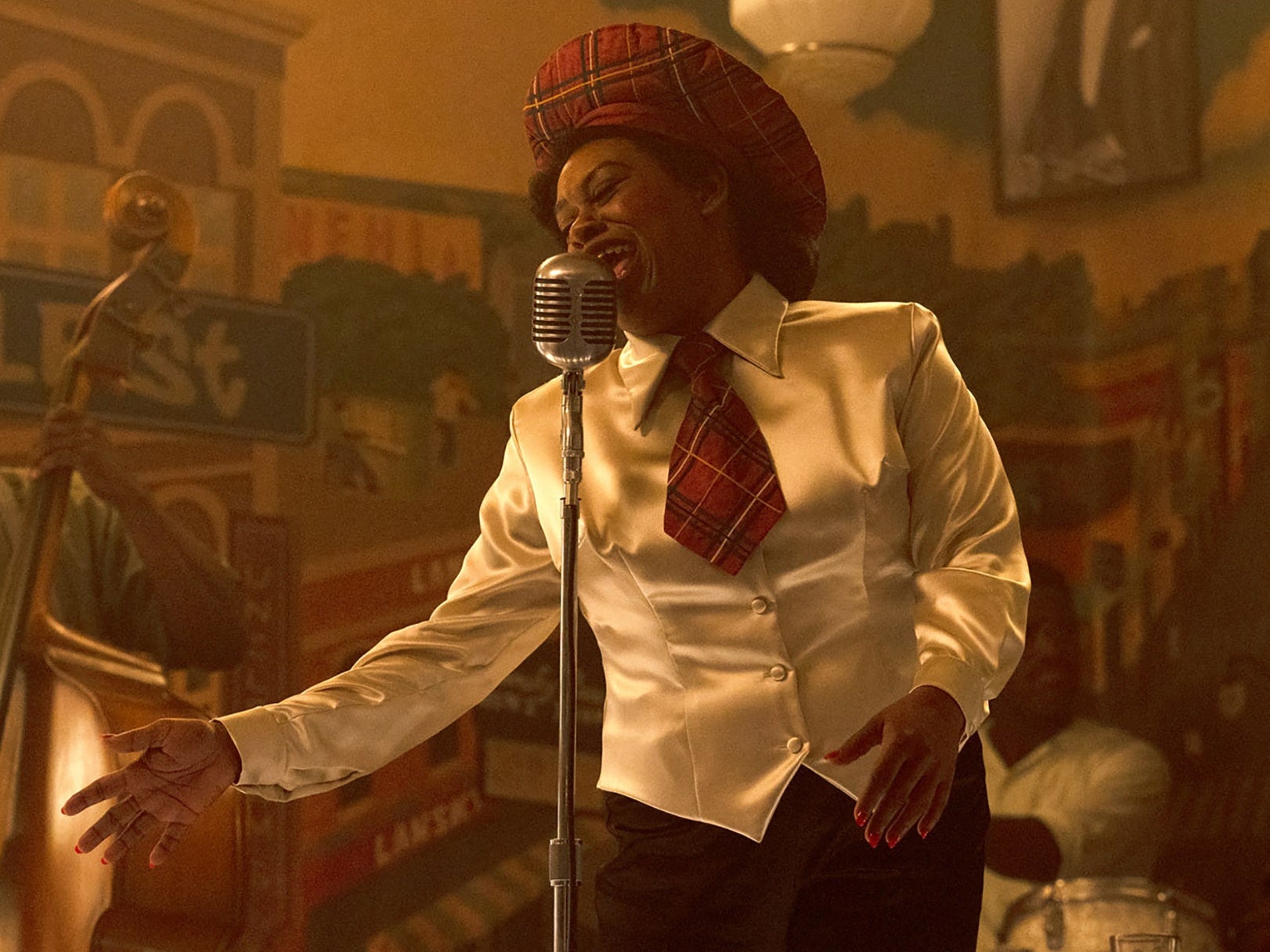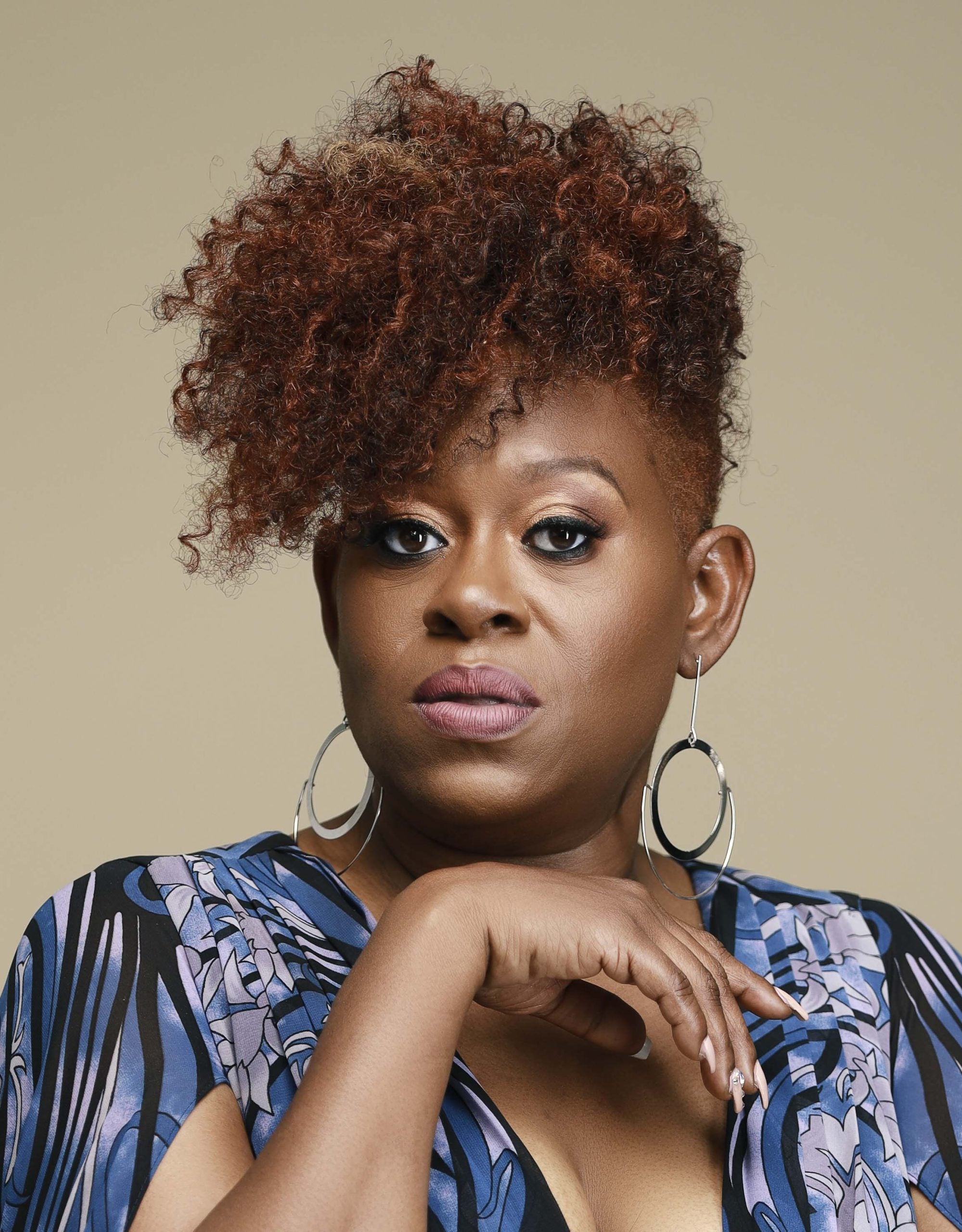
In a 1990 interview with Rolling Stone, songwriter Jerry Leiber said, “I had to write a song for her that basically said “Go f— yourself,” but how do you do it without actually saying it?”
“Her” is Willie Mae “Big Mama” Thornton and the song Leiber was referring to was her biggest hit, 1952’s “Hound Dog.” On the classic song, she calls out a no-good cheater who just won’t carry his weight. Thornton sings with the spirit of the blues, the power of gospel and serious gusto.
The most well-known remake was done by Elvis Presley, who’s 1956 version hit #1 on Billboard’s “Best Selling Popular Records” list.
Elvis’ life is the subject of a new, eponymous movie directed by Baz Luhrmann and yes, Big Mama is featured. The singer is portrayed by Shonka Dukureh, a gospel singer from Tennessee who did her own vocals for the film. You may have seen her performing with Doja Cat during the artist’s Coachella set, on their collaborative song, “Vegas.” The video for the song, which Dukureh is included in, has over 15 million views.
Before her work became a smash, Dukureh was just honored for the opportunity to do right by Thornton. Below, we talk to the gospel singer about how she came to be included in the movie and what she has coming next.
ESSENCE: How did you prepare for the role of Big Mama Thornton?
Shonka Dukureh: When I found out I was going to play the part, I was already a little bit familiar with her. But, I just went online. I Googled her. I went on YouTube to look at some footage of her performing. I made sure to Google any interviews that she had may have done or someone had done about her, just trying to make sure that I understood who she was as an artist, as a person, so that I could try to bring my most authentic self to the process.
How was portraying someone with such an incredible legacy?
I just knew that I needed to be very intentional. I needed to be honest because I knew she was highly respected, what she meant to music, what she means to be Black community and what she meant to the world musically. So I wanted to make sure that I just honored that.
How did the opportunity come about? You were doing the vocals for the movie, but then you were brought in for the role.
My base is in Nashville, Tennessee. From what I understand, Baz Luhrmann and his team had come to the city to record some of the music that was going to be in the movie and they wanted to do some gospel stuff.
A friend of mine that I’ve done music with contacted me to let me know that this was going down right in our city. She said that she wanted my name in the hat, so I threw it in. They had me to send in a video. They liked what they saw and had me to come in.
A year after that, I received an email from Elliot Wheeler [the film’s composer] telling me they wanted to speak to me about being in the movie on film. I was just blown away by an email like that. I just came in to sing with everyone else. A lot of the singers are people that I know from church or know from the community, have done some studio or background work with. So to just get that call after that, it was amazing, completely amazing.
Congratulations! I know that excitement never wears off.
Listen, I’m on cloud nine, and you can’t take me down.

Take me back to the first time you heard of Big Mama Thornton.
I’m a graduate of Fisk University. While I was a student there, I was there a studying to get my Bachelor’s of Arts and Theater. My theater professor decided to do “Smokey Jones Cafe.” I don’t know if you’re familiar with that particular musical, but they have the song “Hound Dog” in that musical. I happened to play the role of the character that was singing their song.
So I knew of Big Mama Thornton. I remember my professor just pointing out that yes, Elvis, a lot of people know that Elvis sang the song. But this lady, Big Mama Thornton, was the original singer.

I love that foreshadowing. You can’t stop destiny. So tell us about working and performing with Doja Cat.
First of all, she was the ultimate professional, clearly a brilliant, creative person. Just to come into her process and watch her work, I was just excited to be there. I knew that I needed to come in with what I needed to bring. I needed to have my part together because I knew she would have her part together.
It was just amazing to be on stage with her and just be a part of what she does. Because I know she was a well respected, well-known, and I was just happy to be there.
And she was so warm! She was so warm and welcoming even though I’m probably considered an unknown. For her at this stage and her career to be so welcoming to me, speaks volume to who she is as a person.
“I just feel like when a woman sings the blues, it just comes from a different place.”
I love the way that you all were able to connect to honor Big Mama Thornton’s work. I think that’s so important to the next generation who’s maybe just now finding out about her.
Yes ma’am.
Why do you think “Hound Dog” is a song that people are still able to connect with? She recorded the song 70 years ago this year.
You know what? It’s a song about a relationship. It’s a song about love and being in love, and not always getting what you’re putting out when you’re in love and the other person not always giving you what you need. I think that’s a human experience, sister. No matter what color you are, you have people are experiencing it today, and that’s why it’s relevant.
Music about love, relationships and the ups and downs, doesn’t go out of style. You will always have someone who’s going through the exact same thing. So, you’re working on an album called Lady Sings the Blues. I would love to hear more about it.







Ooh, I’m so excited about it. So the idea is that we wanted to do a blues tribute record, and basically pay homage to the genre.
I just feel like when a woman sings the blues, it just comes from a different place. And people just receive it in a different way. It’s so important for a woman to sing the blues. Of course we going to get some Big Mama Thornton in there. I’m just excited to give my interpretation, give my nod, my ‘thank you’ to their foundational genre.





